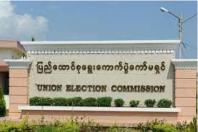
(Kathmandu Post/ANN) — A group of Temporary Protected Status holders from Nepal and Honduras is suing the Trump administration for its decision to terminate TPS designation for the two countries, arguing the decision was unconstitutional and motivated by the administration’s anti-immigrant sentiments.
The American Civil Liberties Union, National Day Laborer Organizing Network, Asian Americans Advancing Justice, and the law firm Sidney LLP filed the lawsuit on Monday morning local time at the Northern District of California on behalf of the nine plaintiffs which include three Nepalis, three Hondurans and three children—one Nepali and two Honduran—who were born in the United States. As per the US citizenship laws, children born in the country automatically qualifies for US citizenship.
The class-action lawsuit is the latest in a series of litigations filed against the Trump administration and names the Secretary of Homeland Security Kirstjen Nielsen, Deputy Secretary Elaine C Duke, the US Department of Homeland Security (DHS) and the United States of America as co-defendants.
The lawsuit alleges the Trump administration violated the Administrative Procedures Act (APA) by departing from past practices when deciding whether to continue or terminate a country’s TPS designation, and adopted a new interpretation of the TPS statute without any formal announcement or explanation.
“DHS (under previous administrations) regularly considered all of the conditions in that country, including the impact of natural disasters and social or economic crises that occurred after the country’s original TPS designation,” according to the preliminary complaint. “But after President Trump took office, DHS—without any formal announcement or other explanation and without acknowledging any departure from past practice—adopted a new interpretation.”
Advocates argue the current administration wittingly ignored comprehensive assessments of the countries’ situation and based its decisions solely on consideration of whether the originating conditions prompting the designation have abated.
“There’s a lot of evidence that the conditions are still bad [in Nepal], but the US government ignored a lot of these evidence that would have supported renewal of TPS for Nepal,” said Laboni Hoq, Litigations Director at Asian Americans Advancing Justice, one of the civil rights organisations involved with the lawsuit.
The lawsuit cites several examples illustrating how Trump administration officials had made a decision to terminate Nepal status—even before reviewing conditions on ground and cherry-picked information to support their judgement.
In one instance, Lee Cissna, the director of United States Citizenship and Immigration Services (USCIS), complained that a draft decision memo on Nepal which included factual statements about challenges to the country’s rebuilding efforts did not “adequately support the proposal to terminate TPS.”
Similarly, Kathy Nuebel Kovarik, the chief of policy and strategy at the same agency, instructed employees to focus Nepal’s conditions report “specifically...on progress in earthquake and recovery efforts” as opposed to the “extremely comprehensive” overview usually provided.
Nepal was first granted the status on June 24, 2015, after a 7.8 magnitude earthquake struck the country, raving mainly hill districts. Nearly 15,000 Nepalis have benefitted from the designation which allows immigrants to live and work in the US regardless of prior status.
“It’s not that Nepal is not recovering, it is,” said Prathana Gurung, campaigns and communications manager at Adhikaar, a New York-based advocacy organization, which has been actively working to support TPS extension for Nepal. “But we still need time.”
In her statement announcing the administration’s decision to end TPS for Nepal last year, DHS Secretary Kirstjen M Nielsen had said: “...the disruption of living conditions in Nepal from the April 2015 earthquake and subsequent aftershocks that served as the basis for its TPS designation have decreased to a degree that they should no longer be regarded as substantial.”
The lawsuit also claims the decisions to terminate TPS for both countries were “motivated by racial animus,” violating the equal protection clause of the US constitution. The DHS, according to the complaint, was “directly influenced by the White House and its racist immigration policies.”
Among other evidence supporting this claim, the complaint makes note of the racist comments President Trump made during an Oval Office meeting with lawmakers last year where he referred to Haiti, El Salvador and some African countries as “shit hole countries.” During the same meeting, he expressed a preference for immigrants from countries like Norway.
“The terminations of TPS designation of nearly every single country that have come up for renewal is not a mere coincidence,” said Gurung. “It’s part of a broader effort to remove immigrants and systematically eliminate the program.”
The Temporary Protected Status programme started in 1990 as part of the Immigration Act to offer temporary relief to individuals from countries wrecked by natural disasters or in midst of political upheavals and wars. Nearly half a million immigrants, mostly from Central America, have benefitted from the programme.
Under Trump, the DHS has effectively decimated the programme, cancelling TPS for six of the ten designated countries: Nepal, Honduras, Nicaragua, El Salvador, Sudan and South Sudan which together account for nearly 98 percent of total TPS beneficiaries.
Keshav Bhattarai, 57, a resident of Sunnyvale, California, is one of the plaintiffs. Originally from Kathmandu, Bhattarai went to the US with his wife in May 2015—nearly a month after the earthquake—to attend his son’s graduation and shortly after applied for TPS. He currently works at a local gas station as assistant manager.
In an interview with the Post, Bhattarai said he was motivated to sign on as a plaintiff because he wanted to speak out on behalf of the community against the administration’s unlawful decision.
“If by me standing up and saying this is wrong will help ensure the rights for thousands of others, then I will think I will have done something worthwhile,” said Bhattarai.
The outcome of the lawsuit is especially crucial for the 15,000 Nepali TPS holders whose protected status expires on June 24.
The lawsuit, activists say, in some ways is a delaying tactic, to help buy them time to work on advocating for a more permanent solution: potentially a piece of legislation that will provide a pathway for TPS holders to gain permanent residency.
“Ultimately we want to be able to win permanent residency for all TPS holders, not just Nepalis,” said Prathana Gurung of Adhikaar. “And that can only be done through legislation which can take time.”
Advocates and activists are hopeful the court will decide in their favour because of prior precedents on other TPS litigations.
Last October, a federal judge in California sided with the plaintiffs in a similar case involving TPS holders from El Salvador, Nicaragua, Haiti and Sudan. Judge Edward Chen issued a temporary injunction blocking the termination of the status of about 300,000 immigrants. The Trump administration filed an appeal with the Ninth Circuit that same month.
The judge in his ruling agreed with the plaintiffs’ claims that the Trump administration’s decisions were racially motivated, writing: “These are not merely comments about a place, but can reasonably be understood as comments about the people who come from those places and their intrinsic worth. It is reasonable to infer racial or national-origin/ethnic animus from these statements.”
Another key issue the complaint highlights is how the termination of TPS violates the rights of US citizen children to live with and be raised by their parents. TPS holders are parents to more than 270,000 US citizen children. TPS holders from Honduras and Nepal have more than 50,000 US citizen children.
Activists and advocates warn of another looming human rights crises if the termination of the status is not blocked.
“If we don’t make noises and make our voices heard,” said Gurung, “this could very well lead to the next family separation crisis.”
http://kathmandupost.ekantipur.com/news/2019-02-12/nepali-temporary-prot...









